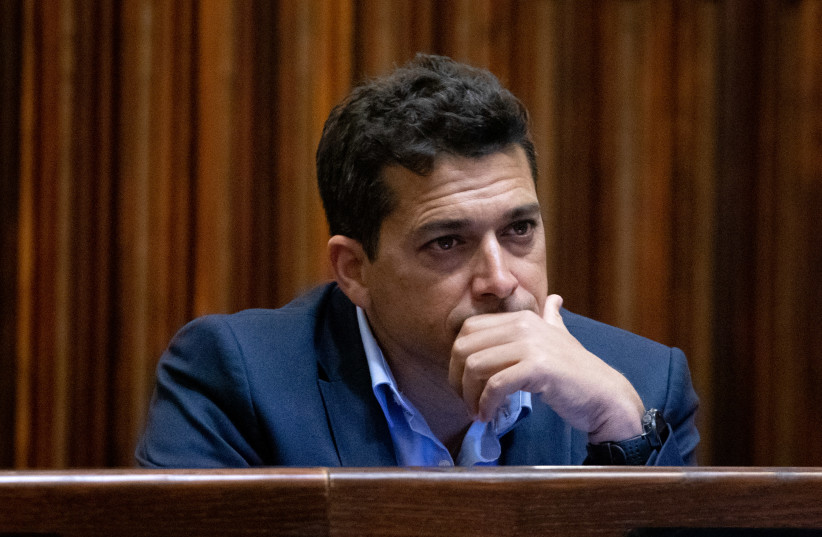Prime Minister Naftali Bennett can relax in his sukkah in Ra’anana in the week ahead feeling satisfied politically.
On Tuesday, he can toast with his loved ones his accomplishment of completing his first 100 days in office with no serious political problems.
With such a diverse governing coalition, and after four divisive elections, that is not an achievement that could have been taken for granted.
Looking back, the biggest threat of those 100 days came on Day One, when both rebel Yamina MK Amichai Chikli and independent Ra’am (United Arab List) MK Sa’id Al-Haromi did not vote for the government’s formation, which was approved by a narrow 60-59 vote.
Since then, Al-Haromi has died from a heart attack. But Chikli’s heart is still beating and his finger keeps voting against the government led by his own party chairman.
Chikli sunk the renewal of the controversial Palestinian citizenship law by a 59-59 vote in July, hours after he told Bennett’s ally, Interior Minister Ayelet Shaked, that he would vote for it. The coalition’s other major legislative failure – New Hope faction head Sharren Haskel’s cannabis legalization bill – was halted by Ra’am for religious reasons.

But the state budget and its comprehensive economic arrangements bill advanced in their first readings, with no serious threat in sight that they will not be passed into law by the November 14 deadline, in which early elections would be automatically initiated. Once they pass, it will be much harder to bring the government down, even if the coalition cannot pass a single additional bill. Bennett would be able to relax even more.
“If any analyst would have said such a heterogeneous government would last so smoothly in its first 100 days, they’d be ousted from their profession,” Israel Democracy Institute president Yochanan Plesner said.
Plesner pointed out that none of the coalition party leaders have an interest in bringing the government down, not even its weakest link, Blue and White leader Benny Gantz, who Plesner noted has vivid experience with the alternative of partnering with former prime minister Benjamin Netanyahu.
But looking ahead, Bennett actually cannot afford to rest on his laurels. There are reforms in the arrangements bill that could end up being taken out and brought to a vote separately later on that could divide his coalition.
Once the budget is passed, the parties in the coalition will feel unshackled and will start trying to implement their campaign promises. This could lead to several headaches for the coalition.
Justice Minister Gideon Sa’ar will try to pass bills preventing Netanyahu from forming another government that Shaked opposes. Shaked will try again to pass the Citizenship Law without Ra’am’s support. Labor and Meretz will try to pass a Basic Law on Equality to balance out the Nation-State Law, which could anger right-wing coalition MKs.
Sa’ar supports another Basic Law on legislation that would alter how constitutional changes are made in an effort to stop one leader from upsetting the government’s checks and balances. There are ideas for electoral reform that Plesner warned could haunt Israel if they are not passed soon.
There are controversial steps on the way to provide more housing. The issue of settlements divides this government and could cause tension with the US while Bennett is working on building an effective alliance with the Biden administration.
Plesner said he thought the biggest threat to the government would be from a security crisis that could arise from Israel confronting threats from Iran and its proxies in the region.
Ra’am MK Walid Taha, who just replaced Al-Haromi as head of the Knesset Interior Committee, told Channel 12’s Meet the Press program on Saturday that even if a war broke out in Gaza, it would not break up the coalition, because he did not think whatever government replaced the current one would be better for his constituency. But Taha has made more controversial statements in the past and may speak differently under pressure.
Another threat to the coalition could come from another variant of the coronavirus escalating COVID deaths even among those vaccinated three times. A new variant could spiral out of control and give a new back wind to Netanyahu.
A decision by Netanyahu to retire could result in a new Likud leader who does not inspire such animosity among coalition MKs. If he could woo coalition MKs to back a constructive no-confidence vote, a new government could be formed in the current Knesset.
So Bennett can enjoy the peace and quiet of his sukkah now, but as he knows, sukkot are not built to last.
